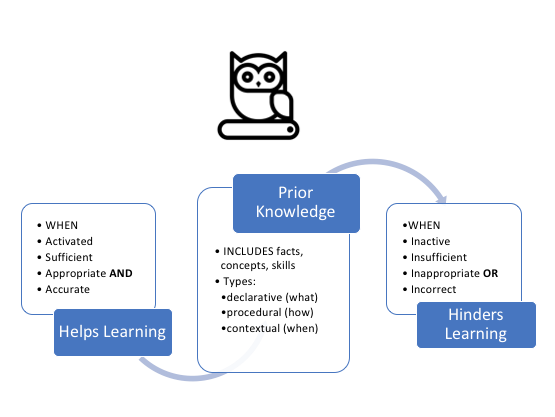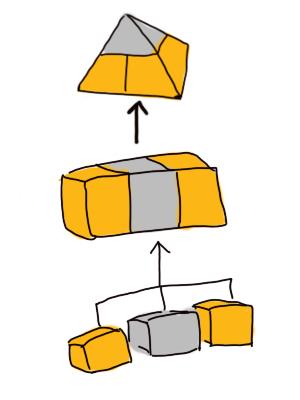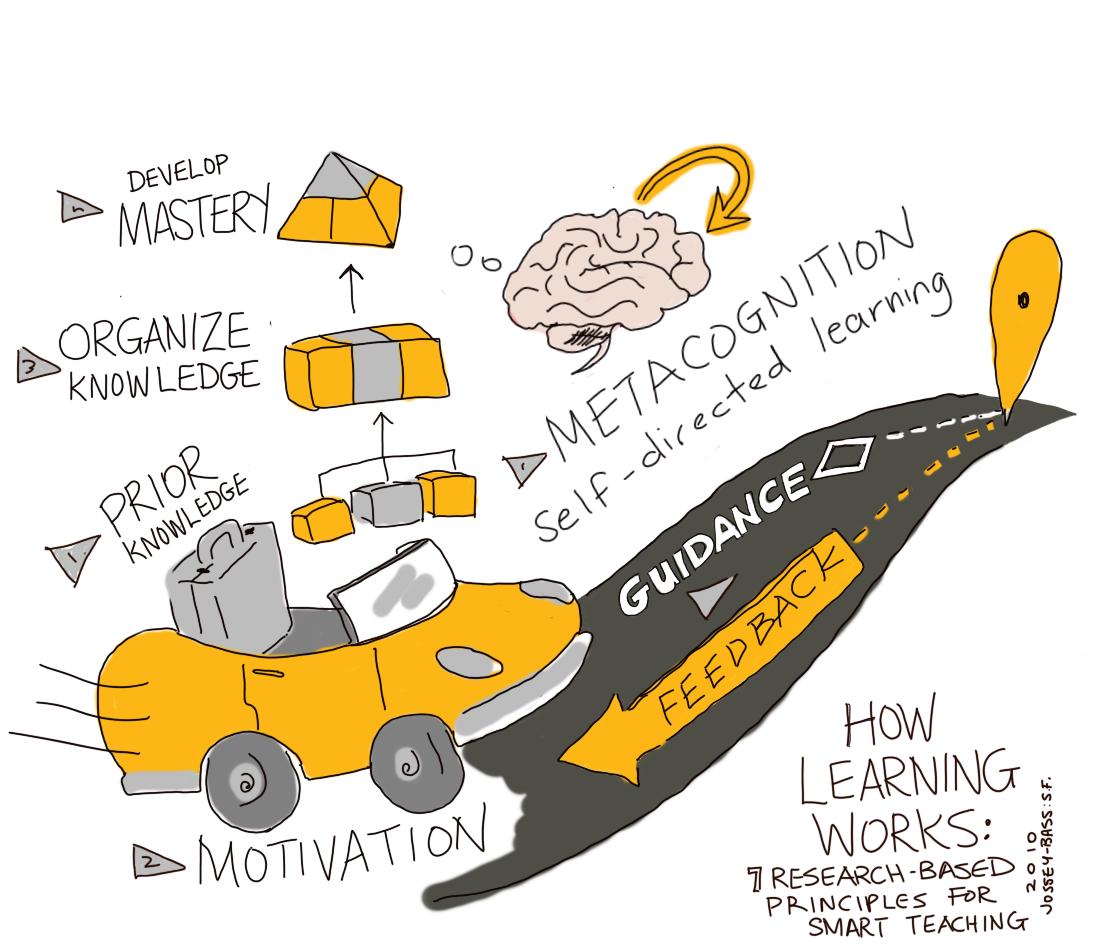
What is the Principle?
Prior knowledge can help or hinder learning.
In Chapter One of How Learning Works: 7 Research-Based Principles for Smart Teaching (HLW), the authors delve into a look at the prior knowledge of learners and how it impacts learning. Prior knowledge (PK) can be a good foundation for building new knowledge, but research shows that student learning is influenced by the nature of the prior knowledge. Depending on a number of conditions, prior knowledge can help or hinder learning.
This diagram (re-created and adapted from the original in the book, Figure 1.1) shows the conditions for when prior knowledge helps or hinders learning.

Prior knowledge (PK) helps learning when it is activated. In addition, that PK needs to be sufficient, appropriate and, above all, correct.
Prior knowledge (PK) that is problematic or that hinders learning is one or more of the following:
- Inaccurate: Some deeply held misconceptions are difficult to correct.
- Insufficient: There are many kinds of knowledge such as declarative (what) , procedural (how), contextual (when) knowledge. Students’ PK may have gaps.
- Inappropriate: Correct but used at wrong time or context.
- Incorrect: Knowledge that is wrong.
So What? (What does this mean for how we teach? What does this mean for helping students learn?)
Many of us use techniques to bridge, integrate, and activate learners’ prior knowledge with the new content we are teaching. But have we considered more closely, the nature of their prior knowledge and whether it is sufficient, appropriate, as well as, accurate?
The HLW authors offer a variety of strategies in Chapter One to help us identify possible problem areas in learners’ prior knowledge and how to proactively address them. Some of these strategies include student self-assessment questions, looking for patterns of error, identifying discipline-specific conventions for our learners, or having them conduct and test predictions based on what they currently know.
Now What? (Applying the Prior knowledge principle to our practice.)
Take a moment to reflect on your current teaching practice. Is there a common misconception about the subject you teach? Share what that is and a strategy you use (or plan to use) to address this issue. To do this, simply subscribe to this blog and post in the Chapter One Comments. Alternatively, you may share your thoughts using social media with the hashtag #BookClubBC.
To encourage participation, those who share a comment/post this week will have their name entered into the Chapter One draw for a $25 CAD gift certificate for Chapters Indigo. Read the contest guidelines here. Good luck!
The Book Club chat on Chapter One will take place on Friday, September 14th at 10 AM PST. Check out the schedule and how to connect with the group. We also invite you to say hello in the Comments section of our Intro post.
Looking forward to reading together and meeting you online!
Acknowledgments
Graphics:
Owl by Oksana Latysheva from the Noun Project
Suitcase from the HLW graphic by Giulia Forsythe





